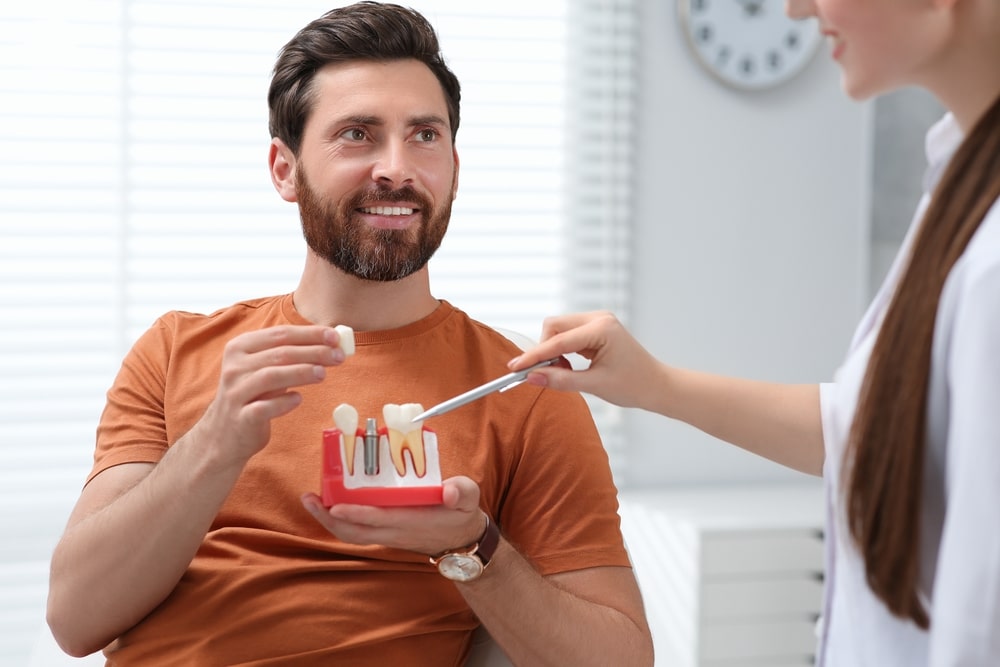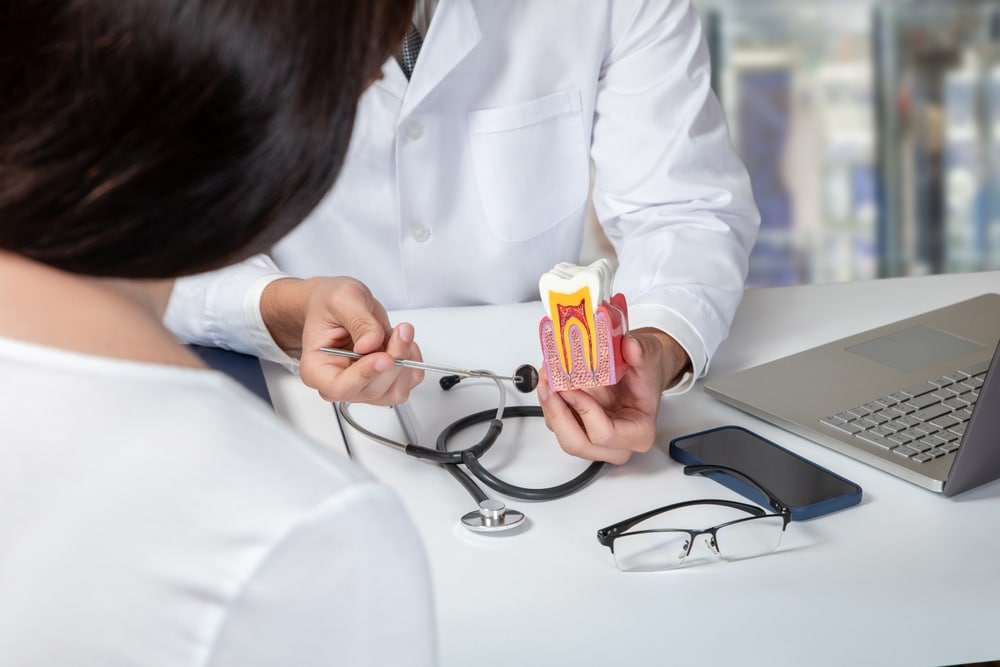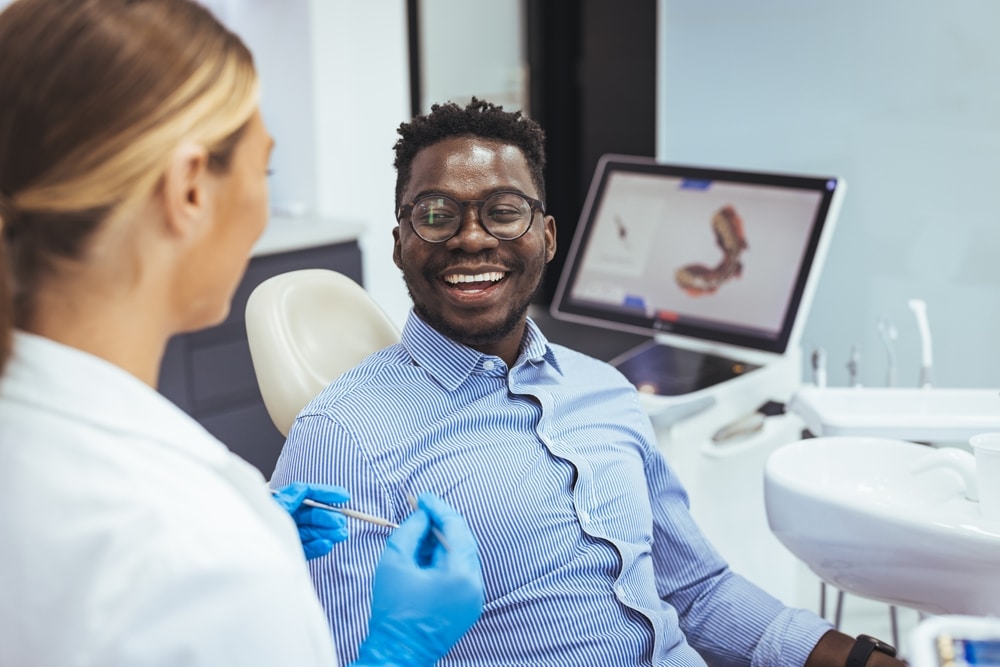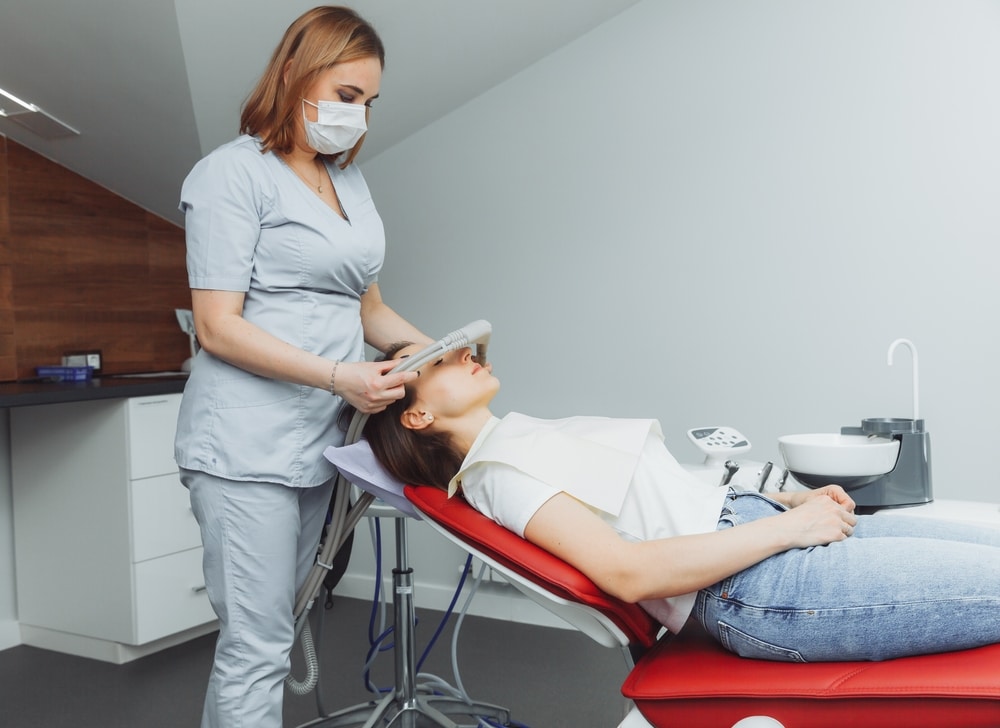Oral Pathology
Oral pathology is a specialized field within dentistry that focuses on diagnosing and treating diseases affecting the oral and maxillofacial regions, which include the mouth, jaws, and related structures. When you experience unusual symptoms or have been referred by another dental professional, an oral pathologist can provide the expert care you need to identify and treat these conditions.
At Dental Specialists of Manahawkin, our skilled team in Manahawkin, NJ is dedicated to ensuring your oral health is thoroughly assessed and treated with the highest level of expertise. Schedule your consultation today to take the first step toward a healthier smile.
What Is Oral Pathology?
Oral pathology involves the study, diagnosis, and management of diseases that impact the mouth, jaw, and facial areas. This specialty is essential in identifying conditions that may not be visible during a routine dental exam but require prompt and effective treatment to prevent further complications. Oral pathologists use a combination of clinical evaluation, imaging, and laboratory testing to accurately diagnose and develop a treatment plan tailored to your needs.
Role Of Oral Pathologists
- Diagnose complex oral and maxillofacial diseases.
- Collaborate with general dentists, oral surgeons, and other specialists.
- Perform biopsies and other diagnostic tests.
- Develop comprehensive treatment plans.
Importance Of Early Diagnosis
- Early detection can prevent the progression of serious conditions.
- Helps in managing symptoms effectively.
- Reduces the risk of complications associated with untreated oral diseases.
Common Oral Pathology Conditions
Oral pathologists are trained to identify and treat a wide range of conditions, some of which may be rare or difficult to diagnose. Understanding these conditions can help you recognize when to seek professional care.
Oral Cancer
- Includes cancers of the lips, tongue, cheeks, floor of the mouth, hard and soft palate, and throat.
- Often starts as a small, painless sore or lump that doesn’t heal.
- Early detection is critical for successful treatment.
Cysts & Tumors
- Cysts are fluid-filled sacs that can form in the soft tissues or bone.
- Tumors can be benign (non-cancerous) or malignant (cancerous).
- Both require careful evaluation to determine the appropriate treatment.
Fungal Infections
- Common in individuals with weakened immune systems or those using certain medications.
- Can cause white patches, redness, or sores in the mouth.
- Often treated with antifungal medications.
Salivary Gland Disorders
- Include blockages, infections, or tumors in the salivary glands.
- Symptoms may include swelling, dry mouth, or difficulty swallowing.
- Treatment varies depending on the underlying cause.
Autoimmune Diseases
- Conditions like lichen planus and pemphigus vulgaris can cause chronic inflammation and sores.
- These diseases require specialized care and ongoing management.
Signs & Symptoms
Recognizing the signs and symptoms of oral diseases is crucial for early diagnosis and treatment. Some common indicators that may warrant a visit to an oral pathologist include:
Persistent Sores / Ulcers
- Sores that don’t heal within two weeks.
- May be painful or painless.
- Could indicate an underlying infection or malignancy.
Unexplained Lumps / Growths
- Lumps in the mouth, jaw, or neck that persist or grow over time.
- May or may not be painful.
- Requires evaluation to rule out cancer or other serious conditions.
Chronic Bad Breath
- Persistent bad breath that doesn’t improve with oral hygiene.
- Could be a sign of infection or systemic health issues.
Difficulty Swallowing / Chewing
- Pain or discomfort when eating or swallowing.
- Could indicate a structural problem or disease in the oral cavity or throat.
Persistent Discomfort In The Mouth / Jaw
- Unexplained discomfort, even in the absence of visible symptoms.
- May be related to nerve damage, infections, or other conditions.
How Oral Diseases Can Affect Your Overall Well-Being
Oral health is closely linked to your overall health, and untreated oral diseases can have far-reaching effects on your general well-being. Neglecting oral health can lead to severe complications, making it essential to address any issues promptly.
Systemic Health Connections
- Oral infections can spread to other parts of the body, leading to systemic infections.
- Conditions like oral cancer can metastasize to other areas if not treated early.
- Chronic oral diseases may contribute to the development of other health issues, such as heart disease and diabetes.
Impact On Quality Of Life
- Persistent oral discomfort can affect eating, speaking, and daily activities.
- Cosmetic concerns related to oral diseases can impact self-esteem and social interactions.
- Addressing oral health issues improves overall comfort and confidence.
When Do You Need An Oral Pathologist?
Knowing when to seek the expertise of an oral pathologist can make a significant difference in your health outcomes. If you experience any persistent or unusual symptoms or if your dentist has identified an area of concern, it may be time to consult with an oral pathologist.
Referral From Your Dentist
- Your general dentist may refer you to an oral pathologist for further evaluation if they detect abnormalities during a routine exam.
- A referral may be necessary for conditions that require specialized diagnostic techniques or treatment.
Persistent Or Worsening Symptoms
- If you have symptoms that do not resolve with standard treatments, it’s important to seek specialized care.
- Conditions like non-healing ulcers, unexplained lumps, or chronic discomfort warrant further investigation.
Second Opinion
- If you’ve been diagnosed with an oral condition and want to explore all treatment options, an oral pathologist can provide a second opinion.
- They offer expert insight and can help confirm or clarify a diagnosis.
Your Health Deserves Expert Attention
When it comes to your oral health, you deserve care from a trusted provider who understands the complexities of oral diseases. At Dental Specialists of Manahawkin in Manahawkin, NJ, we offer the expertise and compassionate care you need to address any oral health concerns. Our team is dedicated to providing you with the highest level of care to ensure your overall well-being. Contact us today to schedule your appointment and take control of your oral health.
Our Services

Apicoectomy

Post Removal

Root Canal Therapy

Root Canal Retreatment

Bone Grafting

Sinus Lift

Oral Pathology

Exposures Of Impacted Teeth

Single & Multi-Tooth Extractions

Wisdom Tooth Extractions

Sedation Dentistry
Recommended Soft Foods
Healing times can vary; please adjust your diet accordingly.
Week One
- Applesauce
- Mashed avocado
- Broth (chicken, beef, vegetable, etc.)
- Ensure drinks
- Jell-O
- Ice cream (without toppings)
- Mashed potatoes
- Milkshakes
- Popsicles
- Pudding
- Soups (tomato/potato)
- Puréed vegetables (sweet potatoes, cauliflower, etc.)
- Yogurt
Week Two (Including Week One Foods)
- Scrambled or poached eggs
- Baked or refried beans
- Creamed vegetables (corn, spinach)
- Soft fruits (banana, papaya, avocado)
- Grilled cheese
- Hearty soups (lentil, minestrone, vegetable, etc.)
- Hummus
- Macaroni and cheese
- Soft pasta dishes (spaghetti, alfredo)
- Peanut butter and jelly sandwiches (without crust)
- Ramen noodles
Foods To Avoid
- Alcoholic and carbonated drinks
- Crunchy foods (e.g., granola, popcorn, pretzels, potato chips)
- Hard-to-chew foods (steak, poultry)
- Grainy foods (e.g., rice, grits, etc.)
- Spicy foods (e.g., salsa, Tony’s seasoning)
If you have any questions or require further clarification on these guidelines, please don’t hesitate to contact us. We are here to support your recovery and ensure your comfort.

